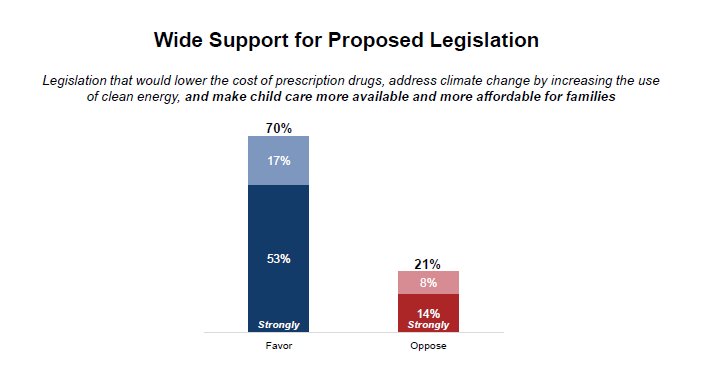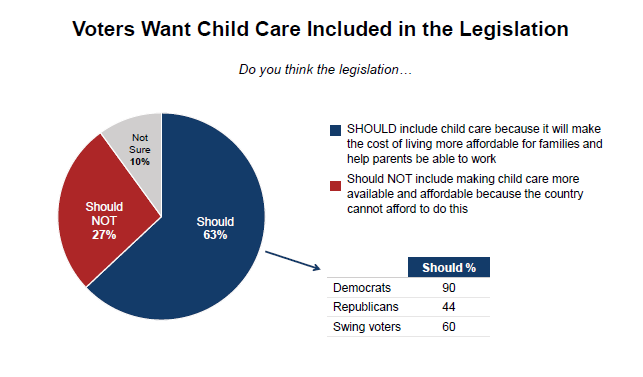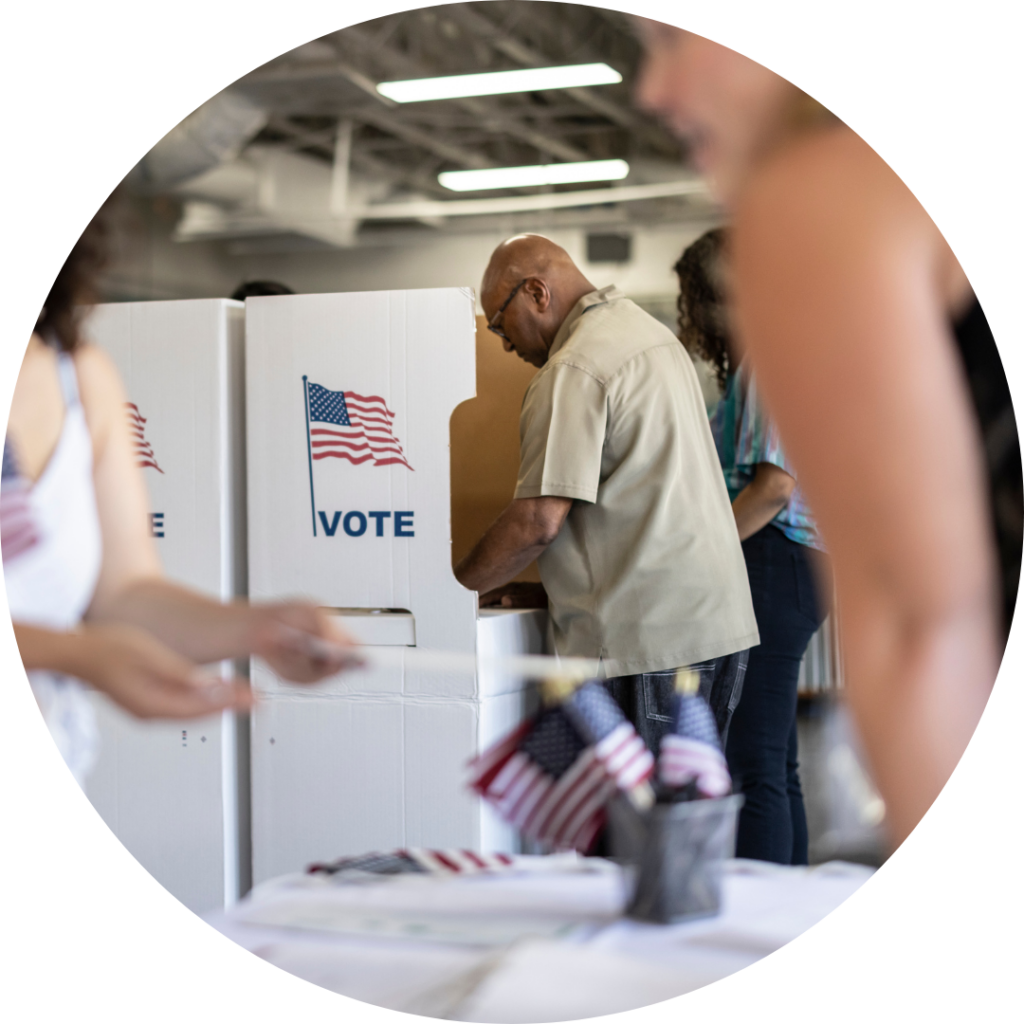New Hampshire: Voter Support for Child Care Rivals Drug Pricing, Climate & Energy in Reconciliation

New Hampshirites widely support legislation that will lower costs for families, including making child care more affordable. Lowering costs for families is a prime goal for voters right now: nearly nine in 10 (87%) say that “the cost of living for families, including the cost of rent, groceries, and child care” is a big problem. As such, the overwhelming majority of voters favor legislation that takes specific steps to address the problem.

Support for such legislation is significant across the electorate, including in all types of communities. And, notably, it is especially high among swing voters (those who identify neither as strong partisans nor at the ideological poles):
| Favor % | Oppose % | Net +/- | |
| Democrats | 96 | 3 | +93 |
| Republicans | 46 | 41 | +5 |
| Swing voters | 73 | 17 | +57 |
| Men | 63 | 28 | +35 |
| Women | 77 | 15 | +61 |
| 18 to 39 | 82 | 10 | +72 |
| 40 to 59 | 63 | 28 | +34 |
| 60 and older | 69 | 22 | +47 |
| Non-college graduates | 64 | 23 | +41 |
| College graduates | 77 | 18 | +59 |
By more than two to one, voters say this legislation should include child care, despite the cost. Nearly two in three voters say this is the case:

Again, this sentiment crosses partisanship—90% of Democrats, 60% of swing voters, and 44% of Republicans say child care ought to be included (43% of Republicans say it should not). It is also notable that both parents (69%) and those without children (62%) say child care should be included.
Indeed, child care rivals the other two elements of the legislation in importance, in voters’ estimation: 78% say it is important for the legislation to lower the cost of child care, compared with 88% who say it is important to reduce the cost of prescription drugs and 68% who say it is important to address climate change.
Both the need for and the benefits of child care are apparent to voters.
- Fifty-three percent (53%) say the only way to meet demand for child care and ensure its affordability is for the government to take action; 38% believe cost and availability will improve on their own.
- Over half (52%) of all voters say they, a coworker, or a friend or family member has had trouble finding child care in the past several years. That includes 34% of parents who say this applies to themselves.
- Seventy-two percent (72%) of voters say that child care and early learning programs are a good investment of taxpayers’ money (including 47% who say it is a very good investment). Even 55% of those who say federal spending is too high believe child care to be a good investment.
- Seventy-five percent (75%) agree that their community would benefit from child care being more available and affordable. That includes 72% of residents of New Hampshire’s small towns and rural areas.
- Seventy percent (70%) agree that more available and affordable child care will help the economy recover from the pandemic by helping people get back to work.
New Hampshirites would be unhappy with their member of Congress if child care is not included in this legislation. Sixty percent (60%) of voters say they would be disappointed (47%) or upset (13%) with their member of Congress if their member votes to approve legislation that excludes child care. Three in four Democrats (76%) feel this way, as do half (50%) of Republicans (compared with 36% of Republicans who would be pleased or happy). Notably, 59% of swing voters say they, too, would be disappointed or upset.
Subscribe to FFYF First Look
Every morning, FFYF reports on the latest child care & early learning news from across the country. Subscribe and take 5 minutes to know what's happening in early childhood education.



